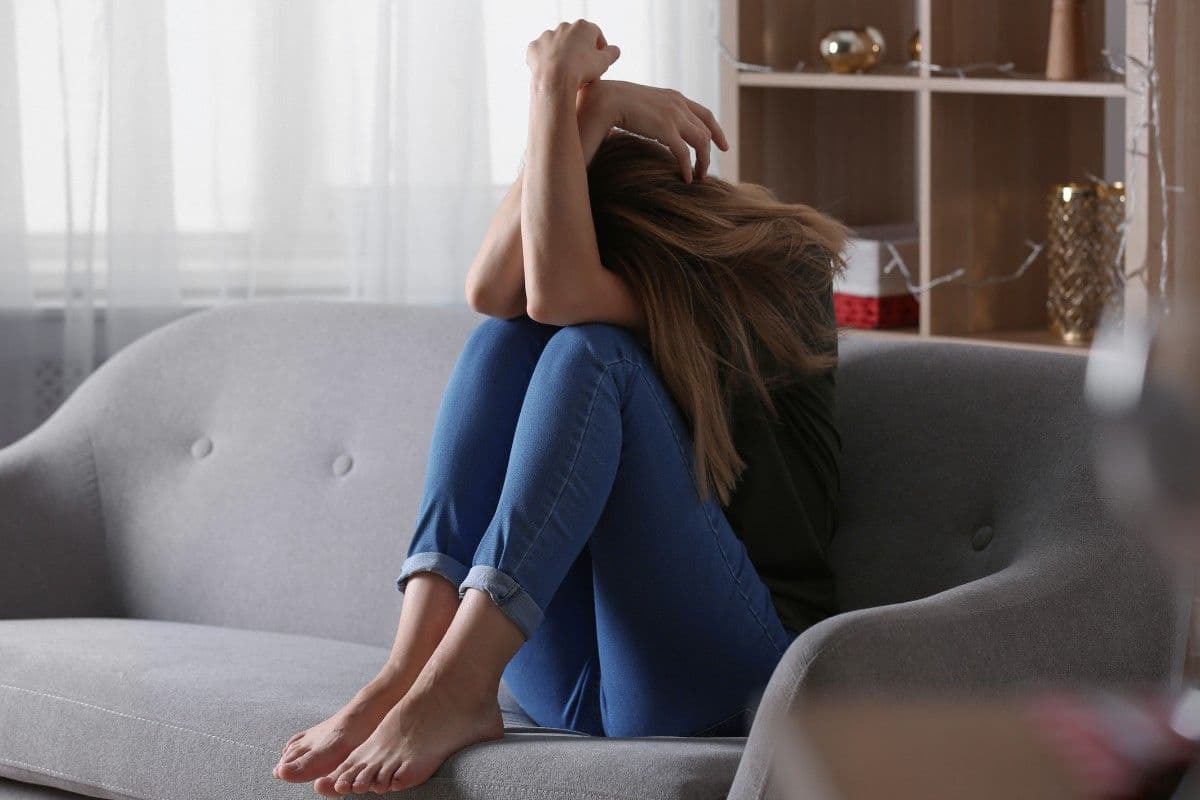
How to identify and solve eating disorders? Stop bothering yourself
Have thoughts about food and your body shape become your number one daily topic? Come find out if you have an eating disorder and how to find a way out.
Eating disorders can start out innocently
You don’t have to go through an experience as traumatic as being bullied for being overweight for an eating disorder to catch up with you. Maybe you managed to get in shape, the people around you started praising you, so you narrowed down your diet more and more and added sports. It can all start with a simple lifestyle change that is really healthy to begin with, but gets out of control when you want better or faster results.
Sometimes even one inappropriate comment is enough to confirm our self-doubt and disrupt our relationship with food and our own body.

Types of eating disorders
Eating disorders are a psychological problem. But they quickly move from the head to the physical body, and thus our physical health suffers. That makes them more dangerous. They are also accompanied by depression and anxiety.
But eating disorders are far from just refusing food. At first glance, a person may not be able to see anything at all, because this suffering has many forms. These are the most common ones.
- Anorexia – limiting food to a minimum or complete starvation. With anorexia, we have a very distorted perception of our own body. Although everyone tells us that we are very thin, we do not see ourselves that way.
- Bulimia – repeated episodes of uncontrollable overeating followed by feelings of guilt, starvation, inducing vomiting or abuse of laxatives.
- Seizure (psychogenic) overeating – here too come episodes of uncontrollable overeating, which are accompanied by feelings of guilt and failure. However, vomiting or the abuse of laxatives no longer follows.
- Orthorexia – although it does not meet the criteria for official eating disorders, it is a mental illness. It manifests itself in an obsession with healthy eating, when we eliminate entire food groups from the menu. This then leads to a lack of certain important nutrients.
- Bigorexia – as with orthorexia, it is not an official eating disorder, but according to estimates, up to 50% of male bodybuilders suffer from it. It manifests itself in a distorted perception of one’s own body, when men feel too weak and not very muscular. Therefore, they use anabolic steroids, which can lead to serious health problems.
Eating disorders most often affect teenage girls and young adult women, but they are not an exception even in adulthood and do not avoid men either. In recent years, there has been an increase in the number of people with eating disorders, but many of them struggle with the disease alone, so we do not have an exact overview of how many there are. Experts also blame this increase on social networks.

How do I know if this applies to me? Symptoms of eating disorders
You may not be sure if you even have a problem. After all, you just want to look good. But you also feel that your relationship with food is not ideal.
That’s why we have a little test for you. Try to see if these statements fit you.
- I think about my figure and weight almost every day, sometimes several times a day.
- I feel like food is my enemy.
- Thoughts of food trigger some of these emotions in me: fear, shame, anxiety, disgust, remorse.
- I completely eliminated whole food groups from the menu, such as all fats, sugars, etc.
- I often doubt myself and don’t trust myself.
- I don’t like myself and my body.
- Restaurant visits cause me stress and anxiety. I avoid them if possible.
- I limit contact with friends and people around me because I feel they don’t understand me.
- I have low energy and a low mood almost all the time.
Did you nod your head a few times? Then it’s really possible that you have an eating disorder.
How to solve eating disorders?
First of all, it’s great that you’re here and want to come up with a solution. If eating disorders fully develop, getting rid of it is not easy and can be a lifelong struggle.
It doesn’t matter at all whether you fit exactly into any of the definitions. The fact that you don’t really like your body and food causes you worry is enough. You really don’t have to worry every day about something that is an inherent part of our lives. There is a way out.

Don’t be alone
Psychotherapies are the most effective for solving eating disorders, as well as any psychological discomfort regarding food and the perception of one’s own body. An expert therapist will help you gradually build a healthy relationship with food and yourself. He won’t tell you what to do, but he will listen to you and guide you to mental well-being and a lifestyle that makes you happy.
The therapist will not prescribe you any medicine, he only heals with words. He or she may just recommend you see a psychiatrist who deals with more serious problems. In addition, you can now easily join therapy online. We have over 150 certified therapists in Hedepy and you can have your first session as soon as tomorrow.
Take a short test, based on which we will recommend the three most suitable therapists to you. You don’t have to worry anymore. Just take the first step.
How can I help a loved one with an eating disorder?
A big problem with eating disorders is the fact that the sufferer does not want to admit that they have a problem. An eating disorder is a manifestation of a sick mind. Therefore, do not force the sick person to eat, do not evaluate his figure and do not give unsolicited advice. Be interested in him as a person, not just his illness. Don’t look for the culprit, but the solution. Our article 5 tips on how to help a loved one start going to therapy can be useful.
If you are trying to help yourself, but you don’t know where to go anymore, therapy could help you too. An experienced therapist will advise you on what further steps you can take and help you not to worry yourself.
Don’t face it alone
Finally, we would like to tell you the last and most important thing. It is completely natural to experience a wave of emotions in a difficult situation. Every crisis has its beginning, but it also has its end. Yours too. Therefore, if you are at least considering it even a tiny bit, ask for the help of a psychologist, psychiatrist, psychotherapist, or coach. Don’t face it alone; you can find help – At Hedepy.cz, there are more than 30 therapists. You can choose someone who is best suited to your needs, and make an appointment for the next day. You can then connect with the therapist online, from the comfort of your own home.Thinking about therapy?

My First Therapy: How to Prepare and What to Expect

What is psychotherapy? And who is it for?


